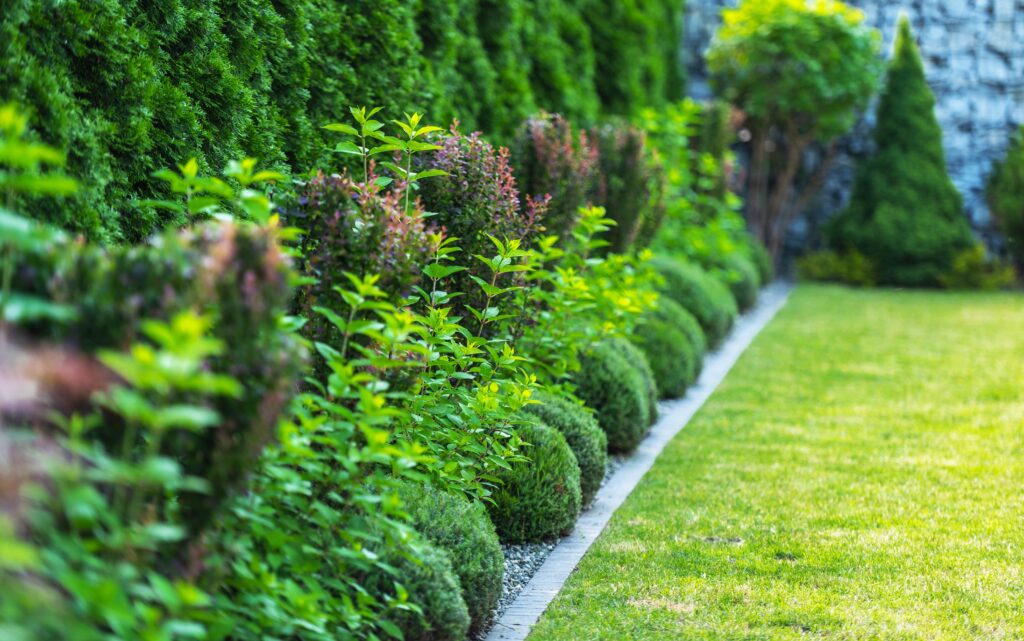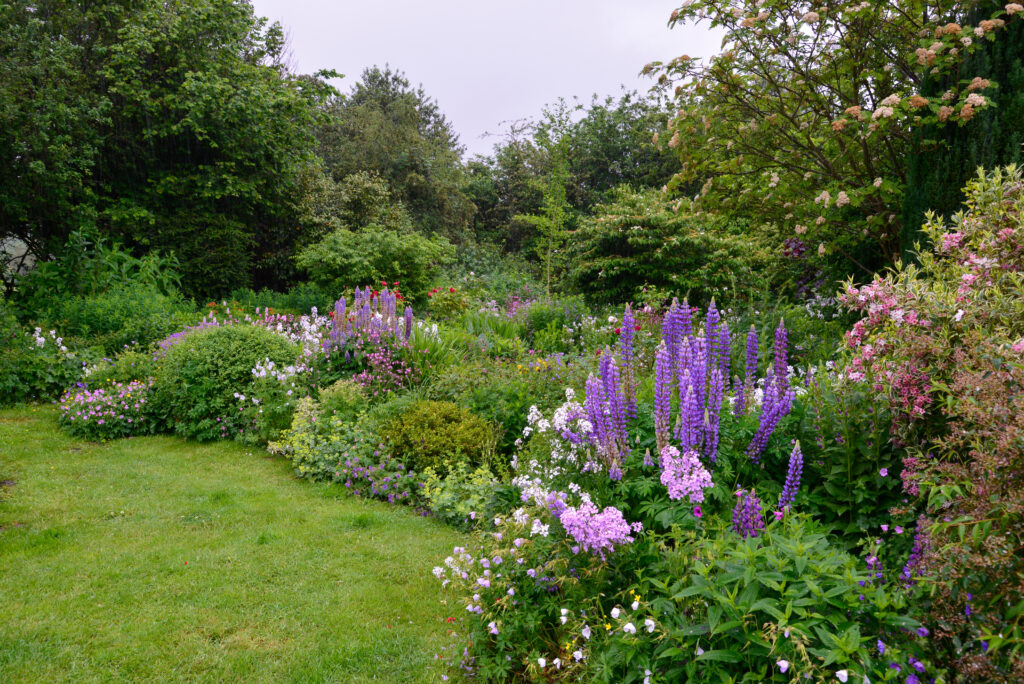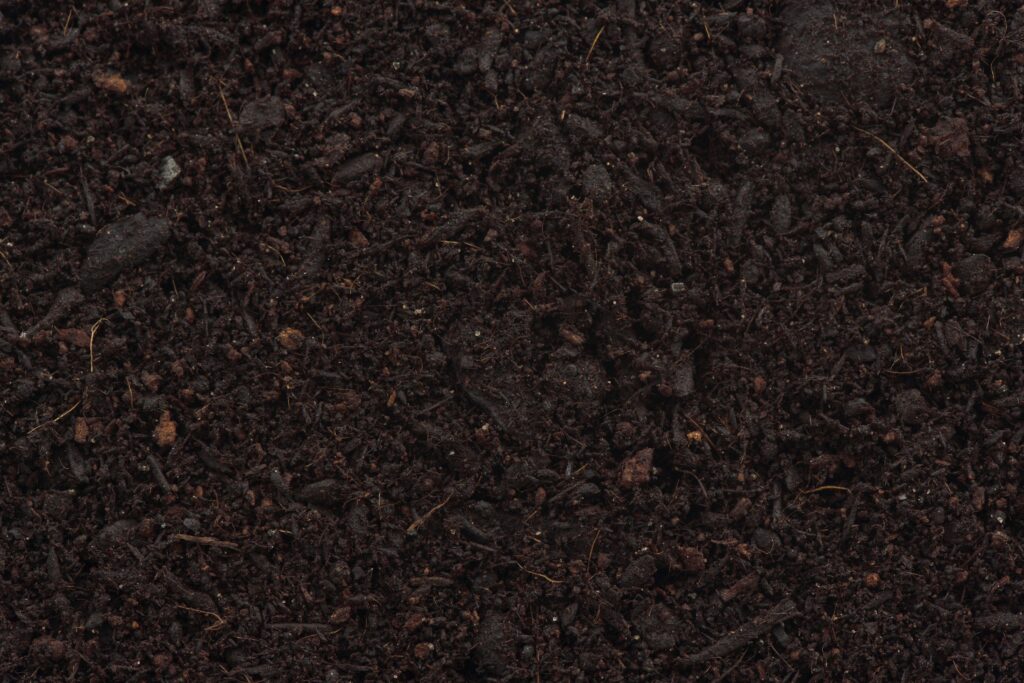- +353 (0)45 879 170
- info@caraghnurseries.ie
- Stickens, Caragh, Naas, Co. Kildare, Ireland
No Dig Guide
For some years now, I and we have been advocates and practising the No Dig philosophy, it makes so much sense when you think about it and I wanted to share with you our thoughts and our findings on this contentious of subjects.

First the basics of what No Dig is. So we leave soil undisturbed as much as is practical. You do sometimes need to use a spade or trowel, for example when cutting out bramble roots, making a hole for planting trees, or planting plants and shrubs or even vegetables and herbs but other than that leave the soil to its own devices.
The second part of no dig is to feed the masses of soil life, with organic matter on the surface. This is how it happens in nature, where old leaves and woody materials are always decaying on top of the ground, its worked for so many years and the soil really does in most cases know how to create its own ecosystem.
For growing annual plants such as most vegetables, especially in damp climates, I recommend using compost as the surface mulch, rather than materials that have not fully decomposed. This speeds up the increase in fertility needed by vegetables, and reduces habitat for slugs.

The benefit to you and I is that we don’t need to break our backs digging and also it reduces the need for weeding, I’m very reluctant to use chemicals in my garden so this really does help. Why the change in thinking? Studies consistently show that higher yields can be achieved by avoiding soil cultivation where possible. Between 2013 and 2020, in side-by-side comparison beds (where the same crops were grown and equal amounts of organic matter were added, but one was dug and the other wasn’t), production of 855kg of no-dig produce, compared to 755kg with digging.
Soil is also healthier, with many more mycorrhizal associations (beneficial fungi that attach to roots), and the reach of the root system is greater, allowing plants to gather water and nutrients from further afield. This leads to soil that supports healthier, stronger plants. All this is evidence found by the RHS particularly int heir gardens in Wisley
Charles Dowding has been pioneering this way of gardening for some years from his farms and homestead in France and England where he has become somewhat of a legend in horticultural circles with record harvests using this very system “No dig makes life easier for us and allows soil life to flourish out of sight, and plants
grow more healthily. Both moisture retention and drainage are improved, there are fewer weeds to hoe or remove, and you don’t get muddy boots!
My advice takes the mystery out of gardening, to make it timesaving, straightforward and enjoyable”

No-dig has also been found the need to water less, since soil structure is left intact. No-dig improves drainage, allowing water to sink in slowly. It’s then held at the roots, where the plants need it most, rather than draining away. Environmentally speaking, carbon is locked into the soil in a no-dig scenario. Dug soil that is exposed to the elements releases CO2. So the no-dig carbon reservoir helps in the battle against climate change.
The best way to create your own No-dig garden with fewer weeds is to cover your soil, once planted with enriched compost that has been produced from organic matter, most garden centres will have this, we certainly do although we do still encourage feeding with a good organic seaweed or chicken manure pellets if you want to keep it handy, with new trees and plants keeping the nutrients readily available especially in the early years is incredibly important to keep them green and healthy without changing the eco system created. Taking advice from Charles on how to deal with weeds effectively with this system,
This depends on how many and which weeds you have, especially perennials, and how much organic matter you can source. All options involve laying a mulch or cover of any light-excluding material. This could be only compost, if you have enough in proportion to the vigour of existing weed growth. Pull any straight forward ones and over time the need to weed grows less but you will still have some to deal with some stubborn ones but less and with more productive soil that retains moisture far better – give it a try!

Quick Links
Information
Location
- Stickens, Caragh, Naas, Co. Kildare, Ireland
Copyright © 2025 CARAGH NURSERIES LTD | All Rights Reserved. eCommerce Web Design by 2Cubed | Privacy Policy | Cookie Policy
FREE DELIVERY
Our Gift to you
On all orders made online over €100
